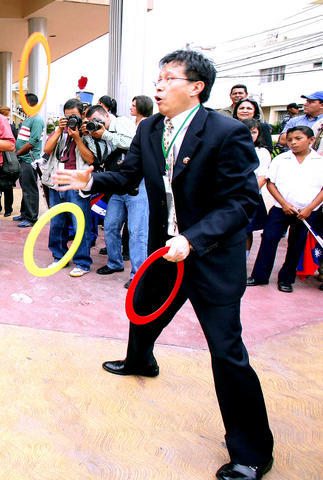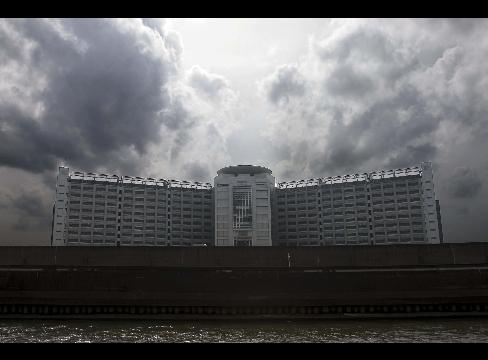3 death row inmates executed
Three death row inmates were executed at Tokyo and Nagoya detention centers on Thursday, Justice Ministry officials said.
Sources close to the case identified the three as Hifumi Takezawa, 69, and Yoshio Iwamoto, 63, who had been detained at the Tokyo Detention Center, and Kozo Segawa, 60, at the Nagoya Detention Center.
The executions bring the total number of convicts who have been hanged since Justice Minister Jinen Nagase assumed the post in September last year to 10. Death row convicts are executed on orders of the justice minister.
Thursday’s executions reduced the number of death row inmates in Japan to 103. (Mainichi)
The country’s bar association condemned the hanging of three inmates yesterday and called for a moratorium on executions until flaws in the legal system are corrected. To curb abuses, the government plans to team citizen judges with professional jurists to rule on serious criminal cases such as murder and rape.
Under the new system, to be implemented in May 2009, six lay judges chosen at random from voter roles will sit alongside three professionals. Decisions will be determined by majority vote.
“Once lay citizens start participating in trials, the conviction rate will decline,” Tomonao Onizawa, councilor general at the Supreme Court, told reporters earlier this year.
Critics say the proposal, coupled with plans to let crime victims and their families petition for specific punishments, may increase the number of executions.
“Victims will be able to make emotional pleas to the court, with lay judges thrust into a role to hear the most heinous crimes,” said Nobuto Hosaka, secretary general of the Japanese Parliamentarian League Against the Death Penalty. “We feel they will favor the most serious punishment.”
Emotional Rulings
At a June 3 mock trial to test the new system, many audience members wanted the defendant, accused of dangerous driving resulting in death, to receive a longer sentence than the eight years handed down.
“We should feel emotions to some degree in judging, but we shouldn’t let emotions control the ruling,” said Kyoko Hamada, a 48-year-old homemaker from Matsudo city, northeast of Tokyo.
Similar systems are used in some European countries, including Germany and Norway. The use of lay judges “assures a more open and transparent process,” according to Norwegian Public Prosecutor Linda Myrdal.
Instead of the proposed changes, the Justice Ministry should curb abuses that occur in police cells, where suspects may be interrogated for as long as 23 days, Menda said.
`Beatings, Intimidation’
Police tactics include “beatings, intimidation, sleep deprivation, questioning from early morning until late at night and making the suspect stand or sit in a fixed position,” Amnesty International said in a July 2006 report.
The cells are “a breeding ground for further violations” and drive the high conviction rate because “forced confessions” are rarely ruled inadmissible, Amnesty International said in a July 2006 report.
Menda said he confessed to killing a priest and his wife in 1949 after three weeks without enough food, water or sleep. He was released in 1983 after a retrial found he had been convicted with fabricated testimony and his alibi hadn’t been considered.
At the end of July, there were 105 people on death row who had exhausted all appeals. Almost all were convicted of multiple murders, or murder with another serious crime such as rape or robbery. The most notorious is Shoko Asahara, founder of the Aum Shinrikyo cult that killed 12 people in the 1995 sarin gas attacks on the Tokyo subway.
Public Support
Ten people have been executed since Justice Minister Jinen Nagase took office in October. His predecessor, Seiken Sugiura, refused to sign execution orders during his 11-month term.
The Japan Federation of Bar Associations said systemic flaws uncovered during the appeals that led to the release of Menda and three other death-row inmates in the 1980s haven’t been fixed.
“The danger that mistaken death sentences will be handed down still exists,” the federation said on its Web site.
The government says public support for capital punishment justifies its use. In the most recent survey by the Cabinet Office, 81 percent of 2,048 registered voters contacted by phone supported the death penalty in “unavoidable circumstances,” while 6 percent wanted it abolished. The UN says public backing is misleading because of the secrecy surrounding these cases. The Justice Ministry didn’t identify the inmates executed yesterday. Their names were reported by Kyodo News, citing “informed sources.”
“There is an obvious inconsistency when a state invokes public opinion on the one hand, while on the other hand deliberately withholding relevant information on the use of the death penalty from the public,” the UN Commission on Human Rights said in a March 2006 report.
The government doesn’t inform inmates or their families about execution dates to prevent unnecessary “mental anguish,” the Ministry of Foreign Affairs said on its Web site. Critics say the policy is inhumane and designed to suppress protests. For death-row inmates, it means each knock on the cell door may be the call to execution.
“Nothing has changed since the time I was arrested,” Menda said.
No time to outline my thoughts now, but I just want to say that Japan’s death penalty system makes me sick to my stomach, and not just because the prisoners are killed right near my house. It is really scary that the final decision of when and if these prisoners die lies solely in the hands of a political appointee (usually an elected official but not necessarily) who goes through no official vetting process, and on top of that no prior warning is given to the public, victims, or the convict or his or her family. You can debate the morality of killing criminals or the particulars of the legal process, but this absolute bare minimum of human dignity and open government could be easily rectified.


